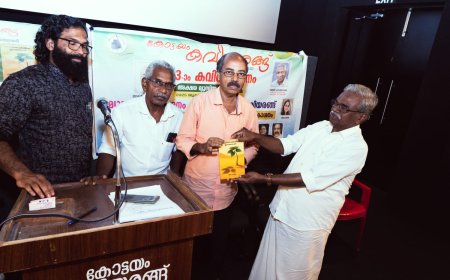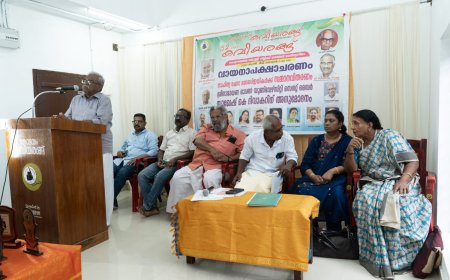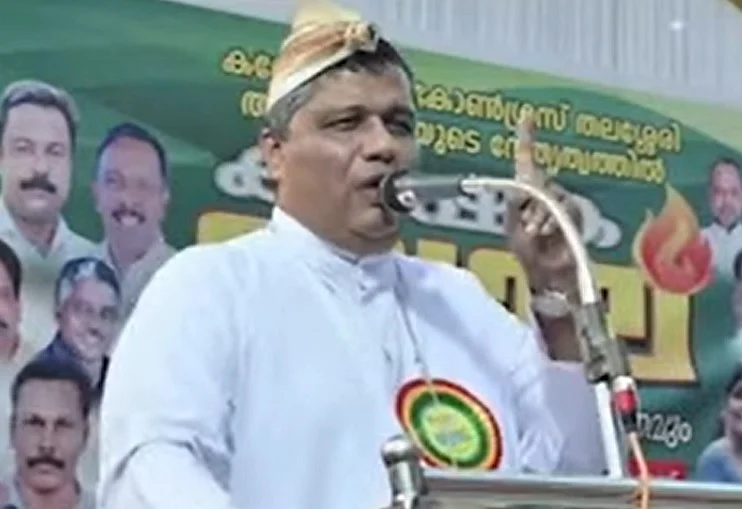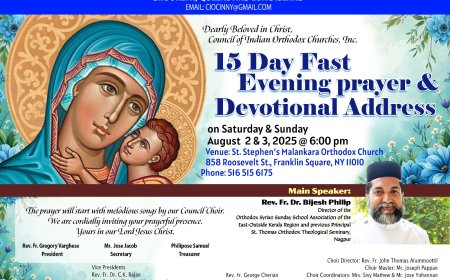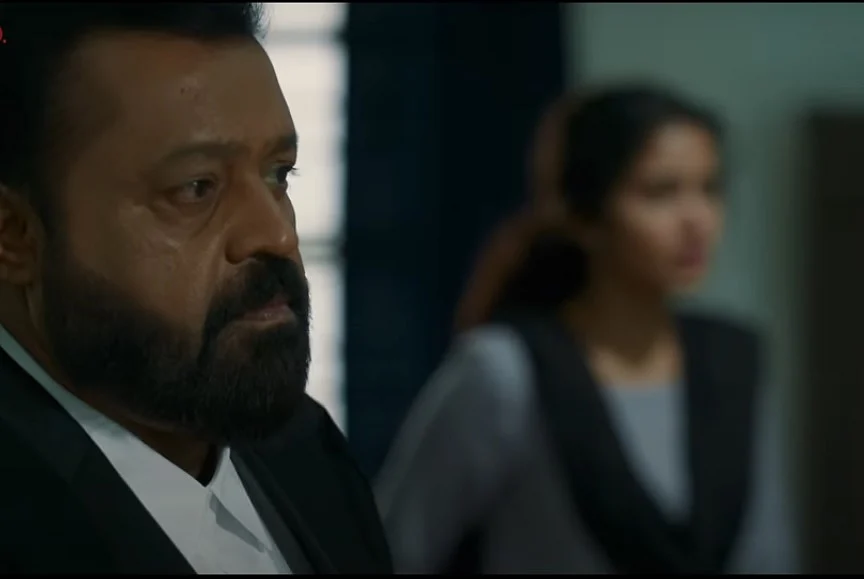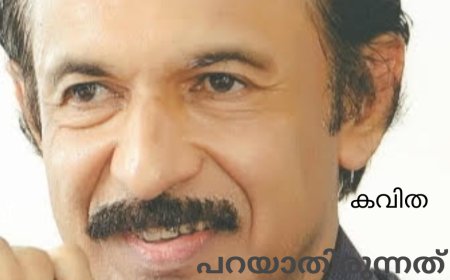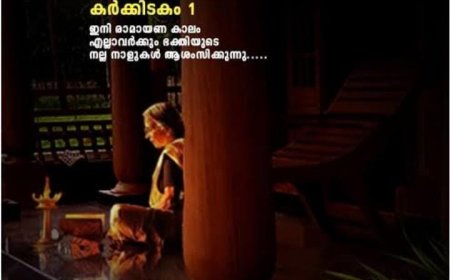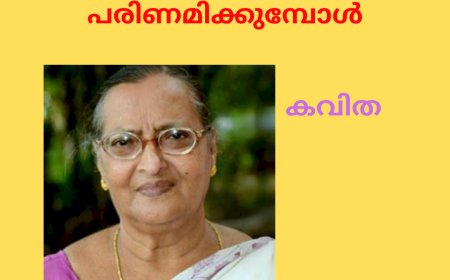Humour takes centre stage in Manu Remakant’s Malayalam book Branded Batura
Follow TNM's WhatsApp channel for news updates and story links. You may need to know Sabin Iqbal to fully appreciate the humour in his friend and professor Manu Remakant’s write-up about him. This happened long ago, writes Manu, on a day they were both in a car and Manu suddenly found the not-so-small Sabin sitting on his lap. He had leapt from the driver’s seat and onto Manu’s lap when a policeman knocked on the window. The poor cop was only asking for a lift but Sabin, despite many years as a renowned journalist, never got over his fear of police, Manu writes. The episode describes a police station visit of the two friends, when Sabin, ready to introduce himself as the Editor of a new media portal, showed up in a suit and tie in hot Thiruvananthapuram. He asked the guard at front “if he needed a lift to go inside”, warmly smiled at one and all, waving an ID card – only it wasn’t his but his six-year-old daughter’s from kindergarten. Like they say, you had to be there, or in this case, you had to read it. Sabin’s is only one of the many absolutely hilarious write-ups in Branded Batura, the first Malayalam book to be written by Manu, who is known for his funny columns in newspapers. At the launch of his book, Manu claimed that all the incidents in it were real, and then lowered his voice to add, maybe with a wee bit of exaggeration. Somewhere in the audience was his wife, Divya, the principal character in most of these incidents. Elsewhere in the hall were several of his friends and acquaintances and his daughter Ammu who also feature in the short and witty anecdotes Manu has chosen to share with the world. Manu with actor-writer Murali Gopy who released the book There is no doubt about it, the book brings laughter to many that need it, including and especially every character in the book as well as its writer who had gone through hard times in the years he wrote it. It cheers up a world that is in much need of cheering up. Manu’s Malayalam write-ups would regularly show up on his social media page, the verbosity of these not repelling readers as lengthy content tends to. Humour was the promise they came looking for. When the stories grew popular, Manu’s friends began to chide him for limiting himself to Facebook. Two of them became instrumental in converting Manu’s ‘Free kicks’ (as he called his column) into a book – Sabin Iqbal, the police-fearing writer and journalist mentioned above, and Anand Haridas, also a journalist. Writer and academic Meena T Pillai, who was present at the launch, said that Manu’s writing has a touch of the VKN brand of humour – a legendary humorist in Malayalam. You appreciate the simplicity of the language, embracing of the local slang and adoption of a comfortable casualness, when you know how different his literary writing is in English. It is not just a profession – teaching English Literature to college students – but a sort of passion he subscribes to, bringing out a video series called A Cup of Kavitha, to introduce world poetry in Malayalam. The writer of Branded Batura is a world away from the serious lecturer of world poetry. But these too are not casually written essays. There is a lot of thought behind them, you gather, from the way each one of them begins at the climax, locks you in suspense and then goes back to the story. So one of the many, many stories featuring (read targeting) Divya begins with the two of them on a motorbike and Manu urgently telling her to cover her face because there is danger ahead and then turns his head too in another direction. “If anyone saw us, we’d be two headless people on a motorbike”. The reason, as you come to know, is nothing so dangerous as it is built up to be, and makes for a really funny episode. But it takes a writer with a great sense of humour and a lot of imagination to turn these little misunderstandings, blunders and confusions into such comical adventures. Poor Divya bears the brunt of it, with her little experiments and innocent questions, and best of all, her habit of mixing up movies. Manu also does not spare his mother, who took to computers late in life, an episode that maybe relatable to many of us. Following her notes at a computer class, she religiously took two sips of tea every time she had to click the mouse, because her teacher had done that the first time.Manu and Divya Even his colleagues at the college, including a former principal, feature in Manu’s tales. Among these, the episode of a male teacher’s surgery and the misunderstanding that a young Manu caused is too comical. Permission was sought from all the persons mentioned in the book, and a few others remain nameless. Or at least that is Manu’s disclaimer. And he of course takes digs at himself frequently – the chapter about his younger version being obsessed with posing for photos at a wedding is a riot. The exasperated uncle whose wedding it was has to ask Manu to budge from the middle of the pandal or at least tell him where his bride was si

Follow TNM's WhatsApp channel for news updates and story links.
YOU may need to know Sabin Iqbal to fully appreciate the humour in his friend and professor Manu Remakant’s write-up about him.
This happened long ago, writes Manu, on a day they were both in a car and Manu suddenly found the not-so-small Sabin sitting on his lap. He had leapt from the driver’s seat and onto Manu’s lap when a policeman knocked on the window.
The poor cop was only asking for a lift but Sabin, despite many years as a renowned journalist, never got over his fear of police, Manu writes.
The episode describes a police station visit of the two friends, when Sabin, ready to introduce himself as the Editor of a new media portal, showed up in a suit and tie in hot Thiruvananthapuram. He asked the guard at front “if he needed a lift to go inside”, warmly smiled at one and all, waving an ID card – only it wasn’t his but his six-year-old daughter’s from kindergarten.
Like they say, you had to be there, or in this case, you had to read it. Sabin’s is only one of the many absolutely hilarious write-ups in Branded Batura, the first Malayalam book to be written by Manu, who is known for his funny columns in newspapers.
At the launch of his book, Manu claimed that all the incidents in it were real, and then lowered his voice to add, maybe with a wee bit of exaggeration. Somewhere in the audience was his wife, Divya, the principal character in most of these incidents. Elsewhere in the hall were several of his friends and acquaintances and his daughter Ammu who also feature in the short and witty anecdotes Manu has chosen to share with the world.
There is no doubt about it, the book brings laughter to many that need it, including and especially every character in the book as well as its writer who had gone through hard times in the years he wrote it. It cheers up a world that is in much need of cheering up.
Manu’s Malayalam write-ups would regularly show up on his social media page, the verbosity of these not repelling readers as lengthy content tends to. Humour was the promise they came looking for. When the stories grew popular, Manu’s friends began to chide him for limiting himself to Facebook. Two of them became instrumental in converting Manu’s ‘Free kicks’ (as he called his column) into a book – Sabin Iqbal, the police-fearing writer and journalist mentioned above, and Anand Haridas, also a journalist.
Writer and academic Meena T Pillai, who was present at the launch, said that Manu’s writing has a touch of the VKN brand of humour – a legendary humorist in Malayalam. You appreciate the simplicity of the language, embracing of the local slang and adoption of a comfortable casualness, when you know how different his literary writing is in English. It is not just a profession – teaching English Literature to college students – but a sort of passion he subscribes to, bringing out a video series called A Cup of Kavitha, to introduce world poetry in Malayalam.
The writer of Branded Batura is a world away from the serious lecturer of world poetry. But these too are not casually written essays. There is a lot of thought behind them, you gather, from the way each one of them begins at the climax, locks you in suspense and then goes back to the story. So one of the many, many stories featuring (read targeting) Divya begins with the two of them on a motorbike and Manu urgently telling her to cover her face because there is danger ahead and then turns his head too in another direction.
“If anyone saw us, we’d be two headless people on a motorbike”. The reason, as you come to know, is nothing so dangerous as it is built up to be, and it makes for a really funny episode. But it takes a writer with a great sense of humour and a lot of imagination to turn these little misunderstandings, blunders and confusions into such comical adventures.
Poor Divya bears the brunt of it, with her little experiments and innocent questions, and best of all, her habit of mixing up movies. Manu also does not spare his mother, who took to computers late in life, an episode that maybe relatable to many of us. Following her notes at a computer class, she religiously took two sips of tea every time she had to click the mouse, because her teacher had done that the first time.
Even his colleagues at the college, including a former principal, feature in Manu’s tales. Among these, the episode of a male teacher’s surgery and the misunderstanding that a young Manu caused is too comical.
Permission was sought from all the persons mentioned in the book, and a few others remain nameless. Or at least that is Manu’s disclaimer.
And he of course takes digs at himself frequently – the chapter about his younger version being obsessed with posing for photos at a wedding is a riot. The exasperated uncle whose wedding it was has to ask Manu to budge from the middle of the pandal or at least tell him where his bride was sitting so that he could tie the ‘thali’ on her. In another chapter, the newly married Manu visits his bride’s home that has too many doors and keeps running into his father-in-law outside every one of them.
Manu sometimes uses techniques as simple as having one character pronounce a single word and have another repeat it, for effect – which works. Sometimes he adds colloquial usages where one word is said twice – “und und” or “kand kand” – which is more hilarious for those who know the local slang. And best of all, he lavishes movie references – a tool that works easily on the cinema-loving Malayalis. Manichithrathazhu and its many famous sequences are scattered all through the book.
This is a writer who loves laughter, committed to spreading it as much as he can. Even in sad times, even when he is down in the dumps and his world is falling apart, he’d grasp at straws and find something to smile about, he says. His book, he must hope, can do that for all those who read it.




